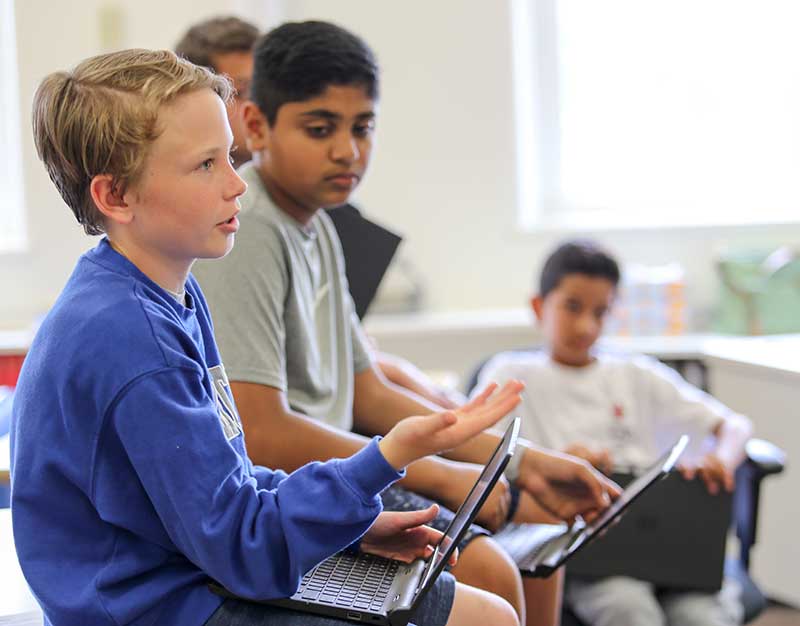For the third year, the seventh grade class embarked on a special end-of-the-year interdisciplinary project. An idea adapted from Mark Wise at West Windsor-Plainsboro Middle School, Middle School Science Teacher Deborah Carter Bruvik, Middle School English Teacher Deb Casne, and Middle School History Teacher Jake Greenberg together prompted their students to design potential solutions for a UN Sustainable Development Goal, as part of the Seventh Grade Global Challenge.
“The goals of this project were to help students learn more about the world around them and the challenges that people are facing worldwide,” said Mr. Greenberg. “The Seventh Grade Global Challenge emphasized creativity, collaboration, and time management while allowing students to follow their own interests as they made connections across their [science, English, and history] classes. We hope it was a rewarding experience for students to learn how to dig deep, solve problems, and reflect on the group process.”
Issues explored fell into the categories of the environment, health, refugees, gender equality, or hunger. Some examples of topics the students explored for the Seventh Grade Global Challenge were identifying solutions for people with food insecurity in Bangladesh, improving conditions in a refugee camp in Uganda, establishing safe drinking water in Nepal, reducing pollution in China, eradicating HIV in South Africa, and finding a treatment for malaria in Liberia.
The Seventh Grade Global Challenge culminated with the opportunity for the middle schoolers to pitch their proposed solutions to an expert in the field. Out of the six experts consulted, four were MFS alumni.
- John Donnelly, M.D. ’71, President of Global Healing
- Rena Greifinger, Technical Advisor for Youth and Girls at Population Services International
- Maria Elena Jefferds ’89, Team Lead on Prevention of Malnutrition for the U.S. Centers for Disease Control
- Katie Doyle Myers, Executive Director of Philanthropiece
- Nancy Polutan-Teulieres ’88, Regional Integration Official for the United Nations High Commission on Refugees
- Alexandra Stark ’06, Ph.D. Candidate in International Relations at Georgetown University
The group whose focus was on producing antimalarial drugs in Liberia shared their proposal with alum Mr. Donnelly, who has over 25 years experience in vaccine research and development. The students’ Seventh Grade Global Challenge idea was to create a factory in a nearby developed country, such as Morocco, to manufacture antimalarial drugs and encourage doctors from around the globe to volunteer in core centers to deliver treatment. Mr. Donnelly, who was videoconferencing in from Geneva where he was attending a WHO meeting, offered his thoughts to the middle schoolers on the feasibility of their anticipated funding sources, discussing the challenges of both start-up costs and ongoing costs.
Another two groups both researched systems to instill safe drinking water for more Nepalese people, and they explained their ideas to Katie Doyle Myers, of the global empowerment foundation Philanthropiece. One group suggested aiding families with water filtration packets, while the other conceptualized building a man made river and filtration center to produce clean drinking water. Through her work with changemakers in disadvantaged communities, Katie was able to give the actionable advice on how the students could continue to develop their ideas from the Seventh Grade Global Challenge to beyond the classroom. “Build relationships. Learn about where others who are unlike you are from, and ask them about where they grew up or what their school was like. Ask if they know anyone from their home country to see if you could work with local leaders to enact change. Finding partnerships is the key to developing sustainable change.”

